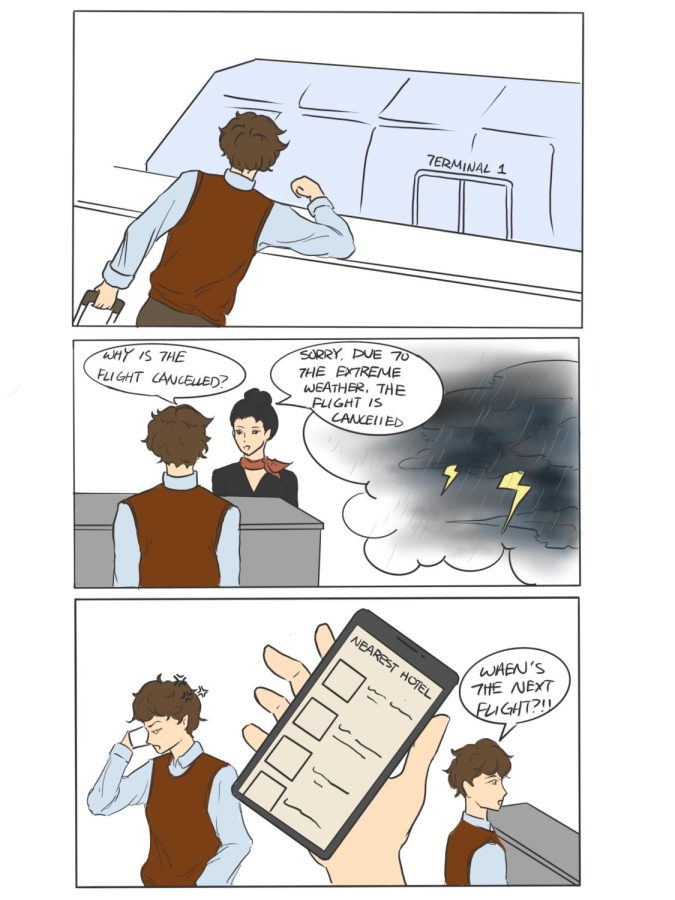Are cheap airlines really “cheap”? Or is it a scam?
While cheap airlines aim to reduce the financial burden on passengers, they’re really adding lots of extra costs.
February 3, 2023
Airplanes should be a means of transportation that gets passengers from one place to another in a timely, efficient and safe manner, without adding to their worries. During the holiday season, most airports are crowded with overly dense flights, disrupting the entire itinerary for both the flight attendants and passengers. Such chaos is especially devastating for cheap airlines: Spirit canceled 25% of flights and delayed 48% of flights; JetBlue canceled 11% of flights and delayed 59% of flights; Southwest had the most severe system breakdown, canceling 42% of flights and delaying 48% of flights.
On October 19, 2022, Spirit Airlines shareholders approved a takeover by JetBlue Airways, ending the six-month battle for the fifth-largest carrier. JetBlue’s CEO Robin Hayes said in a report that “Spirit and JetBlue will continue to advance our shared goal of disrupting the industry to bring down fares from the Big Four airlines.” However, the truth is that although cheap airlines reduce the financial burden on passengers, they in reality are draining their passenger’s patience, wasting their time, and adding a lot of extra costs to them, all at their own expense. For those who are traveling to another country, canceling a flight means they have to spend money on hotel and dining, especially when the next available flight is days after. Some companies, like Spirit Airlines, only compensate their passengers through giving out credits to their account instead of a full refund.
In addition, most cheap airlines have low-rated customer service and very few professional staff in the airport who are able to direct its passengers to the right place. Miscommunications such as giving out false information about flight departure time, directing the passengers to the wrong gate, or not checking updated flight information can cause serious problems to its passengers.
Of course, the poorly constructed system that operates an airline will lead to severe consequences. During this past holiday season, Southwest Airlines experienced huge monetary loss and collateral damage as it did not have standby crew ready to take off. Its “point-to-point” model that serves smaller markets and sends passengers directly from one spot to another led to the greatest meltdown in the history of all airline companies. Pilots and flight attendants are scattered across the world due to delays, flight cancellations, and weather conditions, and the airline has to cancel over 2,500 flights. Some passengers couldn’t rebook flights on the same day and spent hundreds of dollars with car rentals and hotels –– the airline should be responsible for the additional cost. Not to mention how certain airlines like Spirit Airlines do not refund its passengers but use a “credit” policy, a form of refund through vouchers that are exclusive to the airline.
Thus, it is important to keep in mind that “there is no such thing as a free lunch.” The low ticket price comes with higher risks of cancellation and delay, turning a supposedly pleasant and enjoyable trip into a chaotic and horrible experience.
As more people become aware of the low-price scheme, cheap Airlines would have to think of a solution for their backward system, unorganized flight schedules, and to avoid crises like Southwest meltdown.





